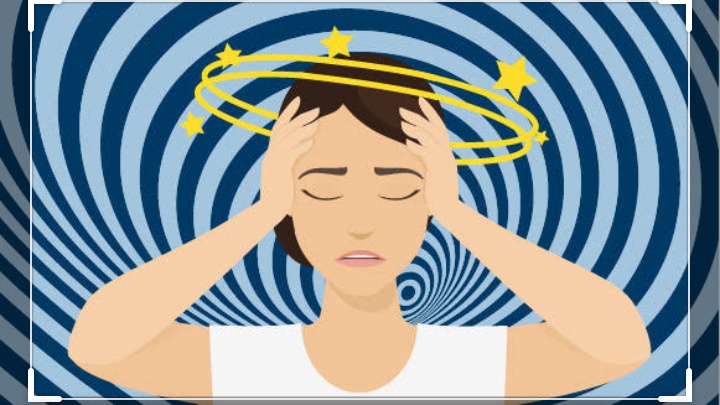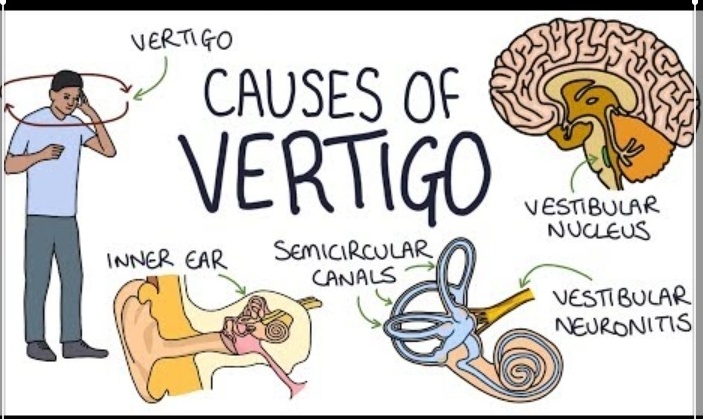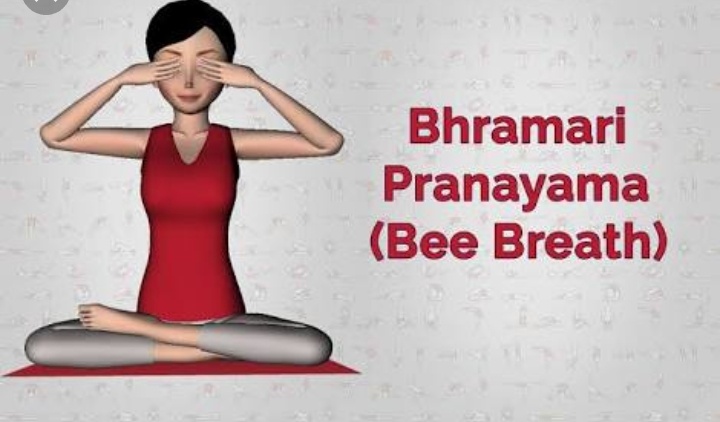 -Article By
-Article By
Dr. Sridevi Alva
VERTIGO
A person with vertigo will have a sense of spinning dizziness. Vertigo is a symptom of a range of conditions. It can happen when there is a problem with the inner ear, brain, or sensory nerve pathway.

SYMPTOMS
• balance problems
• lightheadedness
• a sense of motion sickness
• nausea and vomiting
• ringing in the ear, called tinnitus
• a feeling of fullness in the ear
• headaches
• nystagmus, in which the eyes move uncontrollably, usually from side to side
CAUSES
 Ménière's disease
Ménière's disease
This disease causes a buildup of fluid in the inner ear, which can lead to attacks of vertigo with ringing in the ears and hearing loss. It tends to be more common in people between the ages of 40 and 60 years.
Cholesteatoma
This noncancerous skin growth develops in the middle ear, usually due to repeated infection. As it grows behind the eardrum, it can damage the middle ear’s bony structures, leading to hearing loss and dizziness.
Labyrinthitis
This disorder can happen when an infection causes inflammation of the inner ear labyrinth. Within this area is the vestibulocochlear nerve.
This nerve sends information to the brain about head motion, position, and sound.
Apart from dizziness with vertigo, a person with labyrinthitis may experience hearing loss, tinnitus, headaches, ear pain, and vision changes.
Vestibular neuritis
An infection causes vestibular neuritis, which is inflammation of the vestibular nerve. It is similar to labyrinthitis, but it does not affect a person's hearing. Vestibular neuritis causes vertigo that may accompany blurred vision, severe nausea, or a feeling of being off balance.
AYURVEDIC TREATMENT
Ayurvedic treatment is generally planned, based on careful evaluation of the causative factors for Vertigo. Vertigo can be correlated to Bhrama in Ayurveda where there is involvement of Pitta dosha and Vatha dosha.
The aim of the treatment will be
- To treat the cause of vertigo
- To bring the balance of Vatha dosha as it is vital in movements and balance
Tips
- Movements of neck should be gentle and with care
- Follow light diet and avoid spicy oily and half cooked foods
- Practice regularly the vertigo exercises for neck to improve the balance once giddiness subsides
- Frequent attacks of cold and sinusitis to be avoided
EASY AYURVEDA
• Amalaki (Emblica officinalis) powder half a teaspoon with a spoon of honey, once or twice a day.
• Mix 72 teaspoon each of finely powdered cardamom and cinnamon in warm sesame oil (2 spoons) and apply on the crown of the head
• Raisins – Dip 8-10 crushed raisins in water overnight. Crush them in the same water, the following morning and take it on empty stomach.
• Mix equal quantities of powders of Ashwagandha (Withania somnifera) and a quarter part of Vacha (Acorus calamus – sweet flag) and store it in an air tight container. Take 1 gram of this powder with 250 ml of milk once or twice daily.
• Decoction of Guduchi (Tinospora cordifolia) – 30 ml of Guduchi Kashaya, in the morning, 30 minutes before food.
• Amrita churna (powder of Tinospora cordifolia) – 3 grams or Giloy satwa - half a gram along with a teaspoon of honey.
• Decoction of Aragwadha or Haritaki powder or powder of Aragwadha mixed in decoction at night of Terminalia chebula to ward off constipation.
TIPS TO MANAGE VERTIGO
Exercises to prevent or relieve vertigo:
Move your eyeballs in all directions. Rotate your neck in clockwise and anticlockwise directions to counts of five. Do visual fixation exercises (focusing your eyes at a point for some time and then rapidly blinking them several times). Walking exercises are also useful. Walk with your eyes closed and alternate with eyes open. You can also walk on an inclined surface keeping your eyes focused at a point.
Bramari pranamya

• Deep breathing – Sit or lie down in a comfortable position. Place your thumb on one nostril, close your mouth and inhale slowly through your open nostril. Hold the breath in, close both nostrils and purse your lips. Exhale slowly after 2-3 seconds. Repeat these steps for 10 times. Sit quietly for 5 minutes and breathe normally to avoid getting dizzy again.
• Head massage with essential oils – like lavender oil
• Water therapy - drink a glass of ice cold water whenever you are dizzy. Later pour cold water on your head and back of your neck.
